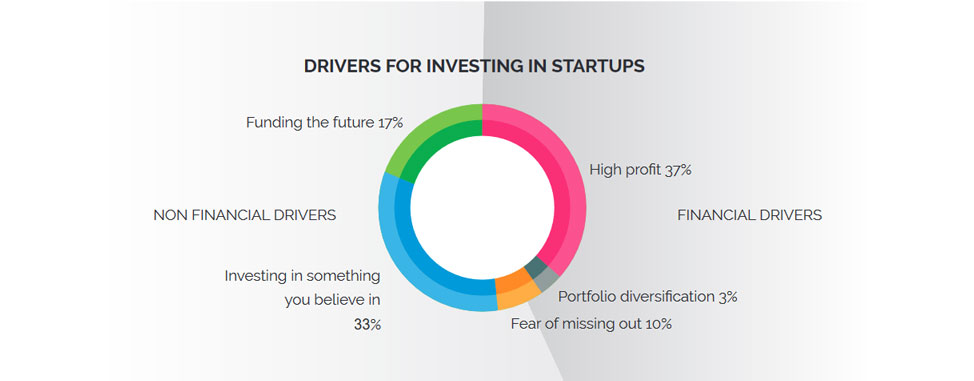Startups investments are increasingly becoming more popular and every year the total venture capital investment reaches a new record.[1]
Recently a new phenomenon emerged in the industry, with the launch of equity crowdfunding platforms, what historically used to be a reserved territory for just the uber-wealthy, is now accessible with the same amount you would invest for a dinner out.
But is investing in startups right for you and what are the benefits of doing it?
Key reasons for investing?
- Portfolio Diversification
Investing a portion (something between 5% and 10 %) of your portfolio in a potentially high return venture is an opportunity to boost your profit expectations, without dramatically increasing the investment risk.
- Potential High Returns
Tapping early in an investment is the best option to have the chance of a “big bang” return of 10X to 100 times your initial investment.
- Tax break (depending on the country regulation)
In several countries, the tax department exempts startup investors from income tax on their investments in start-ups.
There is more than this. There is something else than the tangible benefits which brings always more people in investing in startups. In a survey we recently conducted at Bloomio[2], emerged that non-financial factors – such as “funding the future” and “investing in something you believe in” – are the most relevant drivers for tapping into this sort of investments

What come up from our quantitative study is, in the essence, what one of the most notorious entrepreneur and investor described in few words:

How do you actually make real money?
Obviously not all startups will generate money and some, would represent, instead, a loss for investors. Focusing on the successful ones, below we describe the main instances when investors will generate profits.
IPO: The company gets listed on a stock exchange and investors can sell their shares at the moment of listing or on the stock market at a later stage.
Acquisition: The company gets acquired (normally by another company). During the buying process, the investor will receive a compensation proportional to the shares owned in the company.
Trading: Investors can sell their shares in the company to other investors. This was historically very limited but, leveraging on the potential of the blockchain technology, it is becoming more frequent.
How much money can you really make?
The most exhaustive study on return on VC investment is the one conducted by NBER Research Associate John Cochrane. This research covers 17,000 financing rounds in 8,000 companies, representing $114 billion of VC dollars, between 1987 and 2000.[3]
The average return is close to 700 percent but with very clear differences between top performing companies (around 15%) with return over 1,000 percent and the bottom of the scale (15% of companies) delivering negative return.
Timing is a crucial factor when investing in startups as, earlier the investment, higher is the potential return (and the risk). While investing in Seed startups, investors would expect a 20x return, profit ambition would be around 3x when it comes to late stage investments.
[1]https://www.cbinsights.com/research/report/venture-capital-q4-2018/
[2] https://www.bloomio.com/reports/Bloomio-IMD-Report-The-state-of-equity-crowdfunding-2018.pdf
[3] https://www.nber.org/digest/may01/w8066.html

